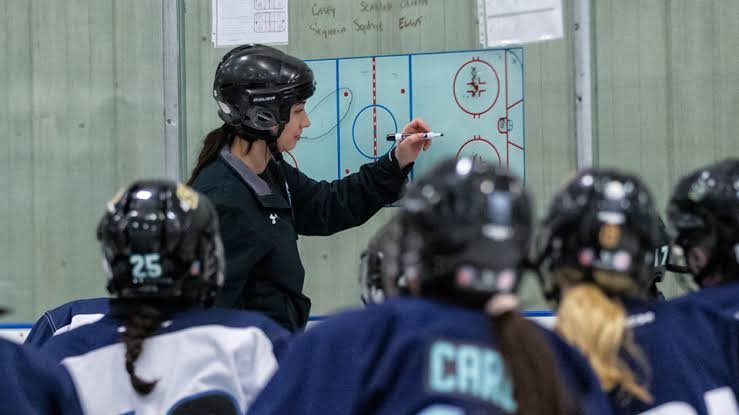Tension Hits the Ice: Coach’s Furious Reaction to Player’s Performance Shakes Up Bruins Locker Room
The usually calm and calculated Boston Bruins’ locker room was thrown into chaos recently after a fiery confrontation between the head coach and one of the team’s key players. With the team struggling to maintain its performance, the outburst has sent shockwaves through the locker room, leaving many wondering about the long-term implications of such a volatile moment for a team that has prided itself on its unity.
It all started during a crucial game where the Bruins were up against a fierce competitor. Despite having a strong start, the team began to lose momentum. The intensity of the game was palpable, and emotions were running high on the ice. As the game wore on, however, one of the Bruins’ star players began to show signs of frustration. Sluggish on the ice and visibly off his game, the player’s performance seemed to falter at critical moments.
The situation reached its peak when the player made a critical mistake in the third period, turning the puck over at an inopportune time, leading to a quick goal by the opposing team. The Bruins, who were ahead at the time, were now trailing, and the tension in the arena became unbearable. As the buzzer sounded to end the game, it was clear that the team had lost, and the coach was less than pleased with the performance.
In the locker room after the game, things took a dramatic turn. Head coach, known for his stoic demeanor, erupted with a fierce and uncharacteristic outburst. He confronted the player directly, accusing him of not giving his best effort and letting his frustration get the best of him. The coach’s voice echoed throughout the room, as the other players stood in stunned silence.
“I expect more from you, and I’m tired of seeing these mistakes,” the coach reportedly shouted, his words filled with both anger and disappointment. “This is not the standard we set for ourselves, and you know it. You’ve got to be better.”
The player, visibly shaken by the outburst, responded meekly, but it was clear that the damage had been done. The coach’s frustration was palpable, and his disapproval was not only directed at the player but at the entire team for failing to meet expectations. While the head coach had often been seen as a mentor who built trust among his players, this emotional reaction exposed the cracks in the team’s mental toughness.
The fallout from the incident was immediate. Sources from inside the Bruins’ organization described a noticeable shift in the atmosphere within the locker room. Some players felt the confrontation was long overdue, as the team had been struggling to play consistently despite having the talent to dominate. Others, however, were taken aback by the intensity of the coach’s outburst, which some felt was unfairly directed at one individual rather than addressing the broader issues plaguing the team.
Several teammates of the player in question attempted to intervene after the incident, trying to calm the mood and offer support. Yet, the coach’s frustration seemed to be all-encompassing. It was clear that he was not just angry at the performance of one player, but frustrated with the team’s overall lack of discipline, focus, and cohesion. As the team prepared for their next game, the dynamic between coach and players was under close scrutiny. There was a feeling that this incident had forced the team to confront its underlying issues head-on.
This intense moment also raised questions about the leadership within the Bruins’ locker room. While the coach’s outburst revealed a desire to push the team to greater heights, it also illuminated a potential fracture in the team’s unity. After all, the Bruins had built their success on a foundation of teamwork and mutual respect, and this confrontation threatened to unravel that carefully constructed harmony.
In the aftermath of the incident, the Bruins’ management reportedly had discussions about the coach’s approach to handling these types of situations. There were concerns that the emotional reaction might not be the most effective way to get the team back on track, especially with tensions running high. However, there was also acknowledgment that the team needed to show more grit and resolve if they were to meet the high expectations that had been set for them at the start of the season.
The player at the center of the controversy has since apologized publicly, expressing regret over his performance and vowing to improve. The coach, while still upset, has suggested that he is willing to move forward, hoping that the incident serves as a wake-up call for both the player and the team. In a recent press conference, the coach noted that while emotions can sometimes run high in the heat of the moment, the ultimate goal is to push the team toward improvement, and this confrontation might have been a necessary catalyst for that.


